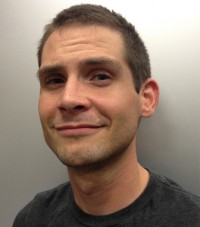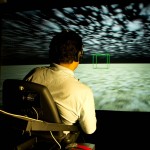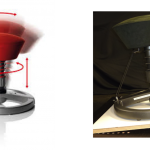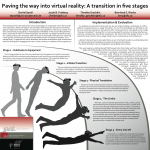
Biography
Jake is driven by a constant desire to understand how things work, be they mechanical, psychological, electrical, conceptual, etc. Following his graduation from Iowa State University with a B. Arch and a B.S. in Psychology, he plans to integrate this background into a larger understanding of virtual design tools in the context of psychological processes.
Projects
Lean and Elegant Motion Cueing in VR
How do we best design locomotion interfaces for VR that provide "enough" physical motion cues (vestibular/proprioceptive) while still being effective, affordable, compact, and safe? Despite amazing progress in computer graphics and VR displays, most affordable and room-sized VR locomotion interfaces provide only little physical motion cues (e.g., vestibular & proprioceptive cues). To provide...
VR in Architecture Design & Review
How can we use immersive Virtual Reality and embodied locomotion interfaces to to design more cost- and space-efficient solutions for effective presentation and communication of architectural designs and ideas? Our overall goal is to iteratively design and evaluate a novel embodied VR system that enables users to quickly, intuitively, and precisely position their virtual viewpoint in 3D space...
Transition into VR: TransLocation
How can we ease users' transition from the real surroundings into the virtual world? Many of today’s virtual reality (VR) setups are very much focused on technical aspects rather then the benefits of a coherent user experience. This work explores the idea of enhancing the VR experience with a transition phase. On a physical level, this transition offers the user a meaningful metaphor for en...


